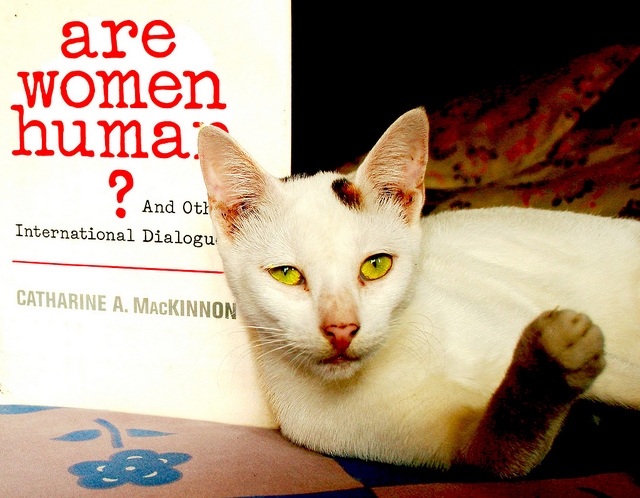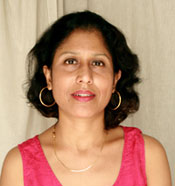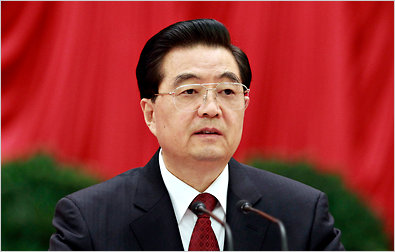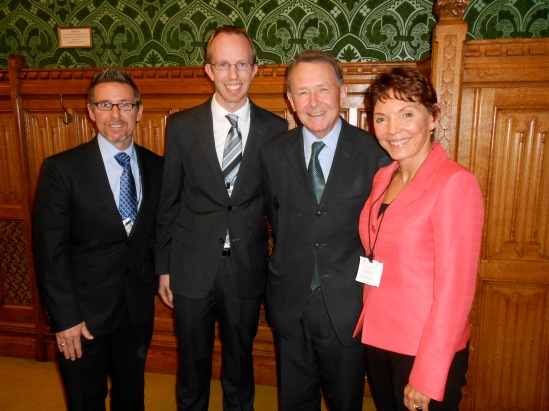 When I first became familiar with the It’s a Girl documentary, a few Qur’anic verses came to mind:
When I first became familiar with the It’s a Girl documentary, a few Qur’anic verses came to mind:
When the sun is wrapped up [in darkness]
And when the stars fall, dispersing
[…] And when the seas are filled with flame
And when the souls are paired with their bodies
And when the female infant [who was] buried alive it is questioned
For what crime she was killed?
…Then every person will know what (deeds) he has brought (of good or evil).[1]
These haunting verses are a reminder that in Islam, God holds humanity accountable for their actions in this world, including the egregious crime of female infanticide. Here, the Qur’an describes God on the Day of Judgment, championing the innocent, the most vulnerable in society, by enabling her to testify as to how she was unjustly robbed of life. Where we were when this happened? While it continues to happen today?
On October 6, 2012, Mercy Mission Canada’s Being ME (Muslimah[2] Empowered) held its annual women’s conference, entitled “Divine Liberation,” in Toronto, Canada.[3] The conference focused on encouraging Muslim women to seek their better selves and obstacles they faced in their journey towards empowerment. Gendercide and gender preference were addressed as the conference hosted a screening and panel discussion of the It’s a Girl documentary to a crowd of over two thousand women of diverse ethnicities, ages and backgrounds. After the screening, the panelist moderator asked: Was this relevant to the Muslim community? What can Islam offer to combat gendercide?
Islam outlines a comprehensive approach to changing societal attitudes towards raising daughters. Islam unequivocally condemns female infanticide (and by extension, female feticide as it exists today), completely eradicating the practice prevalent in 6th century Arabia at the time of Prophet Muhammad (p.b.u.h.)[4]. As discussed in It’s a Girl, economics is the driving force behind gendercide. God responds, “And kill not your children for fear of poverty. We provide for them and for you. Surely, such a killing is a great sin.”[5]
Islamic doctrine further emphasizes the importance of raising daughters so they feel valued as individuals. To illustrate, the Qur’an criticizes the attitudes of parents who are disappointed in having female children and raise them accordingly: “When news is brought to one of them, of (the birth of) a female (child), his face darkens and he is filled with inward grief! With shame does he hide himself from his people because of the bad news he has had! Shall he retain her in (sufferance) and contempt, or bury her in the dust? Unquestionably, evil is what they decide!”[6]
Prophet Muhammad (p.b.u.h.), more than once, discussed the rewards of raising daughters to shift the fundamental social construct in ancient Arabia — words that remain relevant today: “Whosoever has a daughter and does not bury her alive, does not insult/scorn her, and does not favor his/her son over her, God will admit him/her [parent] into Paradise.”[7] In another narration, he stated, “Whomsoever God has given two daughters and is kind towards them will have them as a reason for him/her to be admitted into Paradise.”[8] Prophet Muhammad (p.b.u.h.) also stressed the importance of educating and being affectionate towards children, female and male alike.
Prophet Muhammad (p.b.u.h.) did not merely preach kind treatment towards daughters, but lived his life as testament to his words. Muhammad raised five daughters with love, compassion & respect. In stark contrast to an ancient Arab culture where chauvinistic perceptions of manliness translated to stoicism towards children and contempt for girls, Muhammad’s unquestionable love and adoration for his daughters exemplifies the excellence of his character and consistency of his words. Whenever his youngest daughter, Fatima, would enter a room, Muhammad would stand up and seat her in his place and they would speak closely to each other in hushed tones. He once said, “Fatima is a part of me, and whoever saddens her has harmed me.” Muhammad lost both his sons in infancy, and while he grieved as any parent would, he never once suggested being the father of five girls was a burden or something to be ashamed of.
Condemnation of female infanticide and gender preference and the counter- emphasis on the value of daughters in Islam are themes found throughout the Qur’an and recorded statements and practices of Prophet Muhammad (p.b.u.h.). However, the ideals of Islam do not always translate to reality, and many of the attitudes reflected in the It’s a Girl documentary remain relevant throughout the Muslim world today.
Being a part of humanity means Muslims should care about injustice, no matter where and to whom it happens. Muhammad stated: “Whomsoever of you sees a evil action, let him change it with his hand; and if he is not able to do so, then with his tongue; and if he is not able to do so, then hate it in his heart – and that is the weakest of faith.” This exaltation is not qualified by issue, geography, time, or religion and is only characterized as one thing – working against injustice however it may occur.
As a community, there is need for introspection among Muslims to confront the disparity of treatment between the genders. Muslims are not immune from generations of ingrained cultural norms rife with patriarchy and paternalism where sons receive preferential treatment over daughters, are afforded more opportunities, and daughters are relegated to archaic and stereotypical roles historically suited to females. As conference organizers, there was across the board consensus that the issue was relevant and touched each of us individually although we all came from ethnic backgrounds spanning the continents. A scan of the conference audience illustrated many attendees had personal experience with gender preference in their own families. Throughout my life, I have witnessed and heard similar threads of the same stories emerge –family members, friends, and their relatives, living in North America and our mother countries, who experienced pressure to have sons, who themselves wished only to sons first, who perceived raising daughters as a drain on family resources, and marital gift inequities.
In Islam, there is no such thing as dowry; there is a mandatory gift (mahr) the husband must give as agreed upon between husband & wife to fulfill the marital contract. The mahr is a measure of good will and given to the wife alone (not her family). However, many South Asian Muslims attach a gift exchange requirement between the bride and groom’s families, and often with the expectation that the bride’s family offer the groom and his family exorbitant gifts. The more eligible, educated, wealthier, and overall the better the personal resume of the groom, the more expensive and the longer the list of demands become upon the bride’s family. The gifts are to be given not only to the groom, but to his immediate family and extended aunts, uncles, cousins, etc. as well. To place limits or give less than expected are signs of ill will, the bride’s family labeled as miserly, poor, or lower class and family politics ensue. These practices have no place in Islam, and yet they exist and effectively create the same burdens and economic pressures discussed in the It’s a Girl documentary.
It must be said that the above-mentioned is not always the rule and cannot be generalized to apply to all Muslims or South Asians or both. By the same token, it cannot be ignored that these experiences are recognized and shared by many in our community.
Closer to home, North American Muslims may recognize or experience the effects of gender bias in their own cities. Not far from where the Being Me conference was held, several hospitals in the Greater Toronto Area (GTA), all located in areas with high concentrations of Asians, refuse to permit sex determination ultrasounds.[9] In a 2012 Canadian Medical Association Journal (CMAJ) editorial, studies revealed sex selection “at higher parities if previous children were girls among Asians — that is people from India, China, Korea, Vietnam and Philippines.”[10] In other words, Asian families who already had daughters were more likely to have sons as second or third children than was the normal ratio in Canada. Similar studies in the United States have yielded similar results. Concerns may be further exacerbated by the popularity of privately owned ultrasound businesses in Canada that permit individuals to ascertain the fetus’ sex earlier than could be determined from their doctors and more significantly, during the period of elective abortion permitted in Canada.[11]
None of these reports identify the religion of the ethnic groups participating in female feticide so it unclear to what extent, if any, Asian Muslims contribute to in this heinous practice in North America. More significantly however, is recognizing attitudes in the Muslim community which foster unequal treatment between sons & daughters, however they manifest themselves, and working towards thwarting the elements contributing to gendercide and gender preference.
The Qur’an and Prophet Muhammad’s legacy of social change outlines a blueprint for just and compassionate treatment of daughters and more generally, women for Muslims worldwide. As Muslims, we must also hold ourselves accountable as a community to reflect the Islamic paradigm of social change as illustrated in the Qur’an and life of Prophet Muhammad (p.b.u.h.). As members of the global community faced with gendercide, we can do no less than oppose in our hearts, speak out with our voices, and change with our hands.
[1] Qur’an, Chapter 81, Verses 1-2, 6-9, 14.
[2] “Muslimah” – means “female Muslim.” The noun “Muslim” encompasses both males & females.
[4] In the Islamic tradition, the words “peace be upon him”, here abbreviated as “p.b.u.h.,” are to follow the name of Prophet Muhammad (p.b.u.h.).
[5] Qur’an, Chapter 17, Verse 31.
[6] Qur’an, Chapter 16, Verses 58-59.
[8] Bukhari #1352, Muslim #2629
[11] Sawa, Timothy and Pieper, Annie Burns,“ Fetal gender testing offered at private clinics: Raises fears that gender selection is happening in Canada.” http://www.cbc.ca/news/canada/story/2012/06/12/ultrasound-gender-testing.html.
 Ms. Fasiha Khan was a member of the Being ME conference’s Program committee tasked with developing and implementing the lectures and workshops for the conference. After learning about the It’s a Girl documentary, she introduced it to conference organizers, the launch pad from which the Being ME conference hosted its screening of the documentary at the conference. The Being ME second annual women’s conference, entitled “Divine Liberation,” focused on Muslim women’s empowerment through the Islamic paradigm. The conference was held on October 6, 2012 with over 3,000 attendees.
Ms. Fasiha Khan was a member of the Being ME conference’s Program committee tasked with developing and implementing the lectures and workshops for the conference. After learning about the It’s a Girl documentary, she introduced it to conference organizers, the launch pad from which the Being ME conference hosted its screening of the documentary at the conference. The Being ME second annual women’s conference, entitled “Divine Liberation,” focused on Muslim women’s empowerment through the Islamic paradigm. The conference was held on October 6, 2012 with over 3,000 attendees.
Fasiha Khan is an attorney with a family law background in divorce, custody and domestic violence. She grew up in Maryland, where she was an active member of the Muslim community, developing programs for Muslim youth, speaking on issues related to Muslim women’s rights and volunteering to advocate for domestic violence survivors. She is married to a fantastic man who is very supportive of her work.
The views expressed by guest contributors to the “It’s a Girl” blog represent the opinion of the individual author who contributes the content and should not be interpreted as being endorsed or approved by Shadowline Films. We feature these contributions to foster dialogue and exchange on gendercide and invite our readership to join the discussion.

 When I first became familiar with the It’s a Girl documentary, a few Qur’anic verses came to mind:
When I first became familiar with the It’s a Girl documentary, a few Qur’anic verses came to mind: When I started
When I started Rita Banerji an author and gender activist, and the founder of The 50 Million Missing Campaign to end India’s female genocide. Her book ‘Sex and Power: Defining History Shaping Societies,‘ is a historical and social look at how the relationship between gender and power in India has led to the ongoing female gendercide. Her website is
Rita Banerji an author and gender activist, and the founder of The 50 Million Missing Campaign to end India’s female genocide. Her book ‘Sex and Power: Defining History Shaping Societies,‘ is a historical and social look at how the relationship between gender and power in India has led to the ongoing female gendercide. Her website is  The contrast with the American presidential election campaign could not
The contrast with the American presidential election campaign could not Many Chinese people have been urging Hu Jintao to abandon the one child policy and there are signs that the protests are having their effect. One man in particular has done more than anyone to force open the debate about gendercide. In April of this year the blind self taught lawyer, Chen Guangcheng, who spent four years in prison for opposing the policy, escaped house arrest, finding safe passage to the United States.
Many Chinese people have been urging Hu Jintao to abandon the one child policy and there are signs that the protests are having their effect. One man in particular has done more than anyone to force open the debate about gendercide. In April of this year the blind self taught lawyer, Chen Guangcheng, who spent four years in prison for opposing the policy, escaped house arrest, finding safe passage to the United States. David Alton was a Member of the House of Commons of the British Parliament for 18 years. Today he is Lord Alton of Liverpool, a Catholic member of the British House of Lords where he sits as an Independent. He is Professor of Citizenship at Liverpool John Moores University and author of eight books.
David Alton was a Member of the House of Commons of the British Parliament for 18 years. Today he is Lord Alton of Liverpool, a Catholic member of the British House of Lords where he sits as an Independent. He is Professor of Citizenship at Liverpool John Moores University and author of eight books.